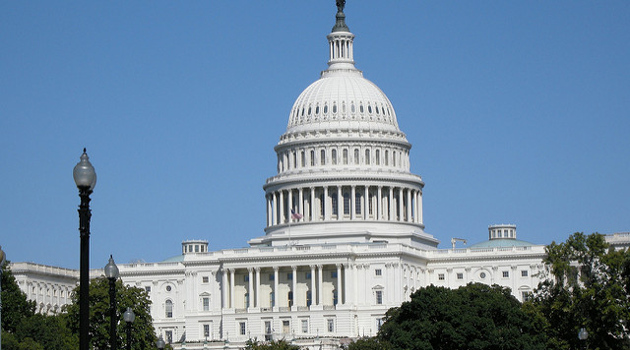Everyone likes the idea of “state capacity,” at least when it means competent, honest government rather than dysfunctional, corrupt government.
But the consensus disappears when some folks argue that you achieve this goal by making government bigger.
It’s especially disappointing when international bureaucracies such as the OECD and IMF argue that poor countries somehow can become richer by imposing higher taxes and increasing the burden of government spending.
At the risk of understatement, that’s nonsense.
But this is not just an issue in developing nations.
In his New York Times column, Ezra Klein worries that his fellow leftists do not pay enough attention to what he perceives to be insufficient state capacity in the United States.
He starts by citing one of Biden’s top economists.
You can’t transform the economy without first transforming the government. …Brian Deese, the director of Biden’s National Economic Council, gave an important speech on the need for “a modern American industrial strategy.” …For decades, the idea has been disreputable, even among Democrats. You don’t want government “picking winners and losers,” as the adage goes. …But societies have richer, more complex goals. …So I won’t say markets failed. We failed. …Deese, in his speech to the Economic Club of New York., declared the debate over: “The question should move from ‘Why should we pursue an industrial strategy?’ to ‘How do we pursue one successfully?’”
He then describes how government fails.
…we need a liberalism that builds. Scratch the failures of modern Democratic governance, particularly in blue states, and you’ll typically find that the market didn’t provide what we needed, and government either didn’t step in, or made the problem worse through neglect or overregulation. …At the national level, much can be blamed on Republican obstruction and the filibuster. But that’s not always true in New York or California or Oregon. It is too slow and too costly to build even where Republicans are weak — perhaps especially where they are weak. …What we have is a government that is extremely good at making building difficult.
And he gives examples of government failure.
The Transit Costs Project tracks the price tags on rail projects in different countries. …the United States is notable for how much we spend and how little we get. It costs about $538 million to build a kilometer of rail here. Germany builds a kilometer of rail for $287 million. Canada gets it done for $254 million. Japan clocks in at $170 million. …The problem isn’t government. It’s our government. …When a government can’t…build the sign-up portal to its new health insurance plan or construct the high-speed rail it’s already spent billions of dollars on, that’s a failure of state capacity.
Klein quotes Nicholas Bagley, a law professor at the University of Michigan, about the “adversary legalism” that makes government slow and inefficient in the United States.
…a way that America differs from peer countries… “Inflexible procedural rules are a hallmark of the American state,” he writes. “The ubiquity of court challenges, the artificial rigors of notice-and-comment rule-making, zealous environmental review, pre-enforcement review of agency rules, picayune legal rules governing hiring and procurement, nationwide court injunctions — the list goes on and on.”
Klein concludes by stating that his side needs to focus not just on ideas, but also on how to reform government so that those ideas can be implemented.
When I go looking for ideas on how to build state capacity on the left, I don’t find much. …health, climate and education plans depend, crucially, on a state capable of designing and executing policy effectively. This is true at the federal level, and it is even truer, and harder, at the state and local level. So this is what I have become certain of: Democrats spend too much time and energy imagining the policies that a capable government could execute and not nearly enough time imagining how to make a government capable of executing them.
In the column, Klein does not offer any concrete solutions, but he does acknowledge that cutting back on “adversary legalism” will cause divisions on the left.
Which sound potentially amusing, but it’s important to acknowledge that libertarians are not united on this topic, either.
Though I’m very skeptical.
As I noted two years ago, my view of state capacity libertarianism is the same as my view of national conservatism. And compassionate conservatism, kinder-and-gentler conservatism, common-good capitalism, and reform conservatism as well.
Before I embrace any trendy new idea, someone needs to show me the tiniest shred of evidence that further reducing economic liberty can lead to more prosperity.
I suppose that’s possible, just as it’s possible I might be playing for the Yankees in the World Series later this year. But neither of those outcomes is likely for those of us who care about real-world evidence.
———
Image credit: Shaw Girl | CC BY-NC-ND 2.0.




